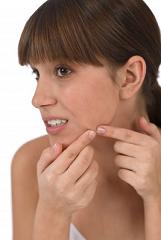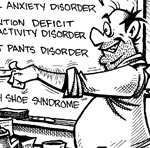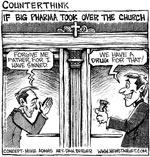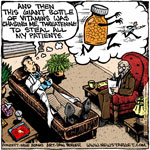Use of Zinc for Acne - Taking Zinc For Skin Health
| Share on Facebook | Share on Twitter | Share on Google+ |
In the recent years, it has been found that acne and Rosacea are tightly linked to zinc deficiency. Zinc is one of the most important minerals in the body. It helps in many of your bodily processes such as cell growth and reproduction, wound healing, hormone regulation, protein metabolism, free radical protection, reproduction, and many others.
Zinc Supplements for Acne
 Zinc is abundant in many food sources such as meat and poultry, sea foods, whole grains, oats, beans, nuts, dairy products and pumpkin seeds. However, the thing about zinc is that many factors in your body can prevent zinc absorption. Only about 30 to 40% of the zinc that you intake actually gets absorbed by your body for use in different functions. As such, there is always that chance that your body gets less zinc than is needed.
Zinc is abundant in many food sources such as meat and poultry, sea foods, whole grains, oats, beans, nuts, dairy products and pumpkin seeds. However, the thing about zinc is that many factors in your body can prevent zinc absorption. Only about 30 to 40% of the zinc that you intake actually gets absorbed by your body for use in different functions. As such, there is always that chance that your body gets less zinc than is needed.
The good news is that zinc supplements are available abundantly over the counter. They exists as oral, topical, tablet or capsule form and are sold as zinc gluconate, zinc picolinate, zinc sulfate, zinc oxide and zinc amino acid chelate forms. What's more interesting is that these zinc supplements are effective for the treatment of acne.
Zinc Acne Treatment: How does zinc help acne?
The idea behind the zinc skin care concept is very reasonable. There are two good reasons for this. First, zinc facilitates the production and regulation of about 200 hormones in your body, and one of that is testosterone. You should know that testosterone is one of the main promoters of acne. Intake of zinc may prevent potential hormone imbalances that can lead to outbreaks.
Second, zinc is closely involved in protein synthesis and in collagen formation in your body, both of which are essential in the maintenance of healthy skin and in normalizing production of skin oils. If you have been to a dermatologist and have been advised to take tetracycline, you may find it interesting that zinc is as effective as this antibiotic for preventing acne.
Zinc and Acne: Zinc Clears Acne
If you currently have outbreaks and zits all over, you may use zinc supplements to alleviate what you are going through. Zinc can help heal your blemishes, reduce the inflammation, and reduce the androgenic effect of hormones on your skin. Thus, if you want your pimples to heal faster, taking some zinc supplements may be a good idea.
Best Form of Zinc for Acne
There are two widely used forms of zinc supplements for acne that you can choose from: zinc gluconate and zinc oxide.
Zinc gluconate for acne. Research studies have shown that taking about 200 milligrams a day orally (corresponding to only about 30 mg of effective zinc) is effective in reducing acne inflammation due to zinc's action on inflamed cells and granulocytes.
Zinc oxide for acne. Topical application of acne on the affected areas can reduce the production of sebum and oils on the area and can accelerate the healing of your zits.
Chelating zinc for acne skin is seen to be more effective in terms of zinc absorption. Vitamins are usually absorbed by our body easily, but when it comes to minerals such as zinc, there are many factors in our body that seem to interfere with zinc absorption such that only about 30-40% are effectively utilized. The word 'chelated' means that the zinc mineral is combined with an amino acid to enhance better absorption. Chelated zinc forms are usually more expensive, but it is of course more effective than regular zinc forms.
-
Skin CareMen Skin Care
-
Free ResourcesFree eBooks
-
Health is not a condition of matter, but of Mind.Mary Baker Eddy
-
Featured Health SupplementTotal Balance
 provides a broad spectrum of around 80 of the nutrients that your body needs…including vitamins, minerals, trace elements, antioxidants, amino acids, neuronutrients, bioflavonoids, carotenoids, herbal extracts, enzymes and other complementary co-factor ingredients.
provides a broad spectrum of around 80 of the nutrients that your body needs…including vitamins, minerals, trace elements, antioxidants, amino acids, neuronutrients, bioflavonoids, carotenoids, herbal extracts, enzymes and other complementary co-factor ingredients.
-



















